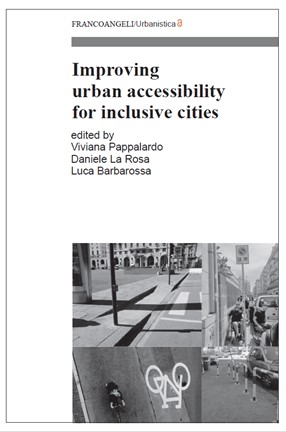Ensuring accessibility for everyone is essential for building sustainable and equitable cities, regardless of their physical, intellectual, social, economic, gender, or age condition.
Urban accessibility typifies public spaces that are well integrated with vehicular and pedestrian spaces, interconnected through obstacle-free routes, and where urban greenery and public furniture design allow for well-being and safe enjoyment.
Accessibility must also be understood in terms of equal access to different functions and services, society-driven participatory institutions and inclusiveness in government processes, and provision of quality education and job opportunities.
The United Nations 2030 Agenda for Sustainable Development urgently calls for action towards accessibility-related targets. To make cities and human settlements inclusive, safe, resilient, and sustainable, for instance, it is important to ensure that all men and women, especially the vulnerable and impoverished, have equal rights to access basic services, sustainable transportation systems, affordable housing and other properties, inheritance, green and public spaces, and other natural resources. At the same time, sound national, regional, and international policy frameworks based on pro-impaired and vulnerable-sensitive development strategies are invoked to end poverty in all forms and everywhere. Furthermore, it is advocated that to achieve the goals of promoting equitable quality education, lifelong learning opportunities, and well-being for all, it is necessary to guarantee that individuals lead healthy lives and, in addition, that all students obtain the knowledge and skills required to advance sustainable development, including through education for sustainable development and sustainable lifestyles, human rights, and equality.
The elimination of barriers and the equality of access to the environment is an issue of civil rights and cannot be faced haphazardly. Many researchers have focused on understanding how to survey, measure, analyze, and report attributes of accessibility in urban realms. This important ethical goal has also challenged different stakeholders, particularly urban planners and designers, to create enabling urban spaces.
Partners of the Map4Accessibility Project, funded by the European Union under the Erasmus+ Program and other invited authors have worked on the design and publication of the book “Improving urban accessibility for inclusive cities” to support and sustain the project’s long-term durability while highlighting the fundamental role of a joint research and educational network of institutions, associations, NGOs, and research centers committed to promoting social inclusion and sustainability of development and community.
One year of work to collect researches, projects, perspectives, and discussions on different aspects of accessibility, tangible and intangible, with a special focus on urban contexts.
New insights into the state of the art of urban accessibility are conveyed to drive cities and institutions to a more inclusive and sustainable future.
Addressing the increase of awareness of scholars, public administrations, and other stakeholders interested in the management of accessibility-related issues, this publication builds upon the experience of the Project to enrich the knowledge on the topic, which will emerge as increasingly urgent challenges in daily urban life.
The book’s Topical Parts include eleven papers and cover three domains related to urban accessibility:
Part One «Accessibility for all: projects and best practices» gathers lessons learned under the frameworks of national and international research and innovation projects, based on the outputs from case studies and the related supporting methodological approaches (digital accessibility, community mapping, service-learning, urban walking). Case studies dealing with different aspects of accessibility include urban policies, plans, design and implementation experiences, and other activities related to urban accessibility improvement and awareness.
In Part Two «Declining accessibility: from the normative dimension to the urban landscape», a special focus is put on urban planning and urban and architectural design insights, as well as legal and policy frameworks across different geographical contexts. Theoretical backgrounds and novel research approaches on outstanding topics related to urban accessibility (particularly the digital mapping and its potential utilizations) are collected in Part Three «Accessibility and novel research paths».
The book is published by Franco Angeli in open-access format and can be freely downloaded at the following link: https://series.francoangeli.it/index.php/oa/catalog/book/1266
Complete citation information: Pappalardo V., La Rosa D., Barbarossa L., (2024). Eds. Improving Urban Accessibility For Inclusive Cities, Franco Angeli, ISBN 9788835169192
